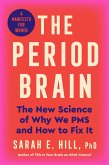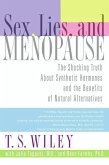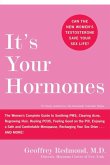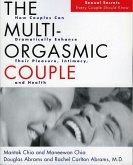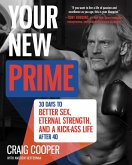In I'm Not in the Mood, Dr. Reichman reveals the effectiveness of small doses of testosterone in reviving sexual desire and pleasure for women. Questions answered and topics discussed include:
- Why and when do women make male hormones?
- Where do all our male hormones go?
- Behavior, life changes, and medical problems that affect our libido
- Medications that affect our libido
- Will creams, pills, lozenges, patches, or shots help?
- When you should see a psychiatrist, psychologist, or sex therapist
- How to discuss libido issues with your doctor
- How to reach your biologic sexual potential
The "hormone of desire," testosterone, acts on the brain to stimulate sexual interest, sensitivity to sexual stimulation, and orgasmic ability in both sexes. The amount of testosterone circulating in a woman's blood declines by about 50 percent between her twenties and fifties. The most common complaint associated with this decline is a seemingly unexplainable decrease or loss of sexual desire and enjoyment.
In I'm Not in the Mood, Dr. Reichman reveals the effectiveness of small doses of testosterone in reviving sexual desire and pleasure for women. Questions answered and topics discussed include:
- Why and when do women make male hormones?
- Where do all our male hormones go?
- Behavior, life changes, and medical problems that affect our libido
- Medications that affect our libido
- Will creams, pills, lozenges, patches, or shots help?
- When you should see a psychiatrist, psychologist, or sex therapist
- How to discuss libido issues with your doctor
- How to reach your biologic sexual potential
Dieser Download kann aus rechtlichen Gründen nur mit Rechnungsadresse in A, B, BG, CY, CZ, D, DK, EW, E, FIN, F, GR, HR, H, I, LT, L, LR, M, NL, PL, P, R, S, SLO, SK ausgeliefert werden.




